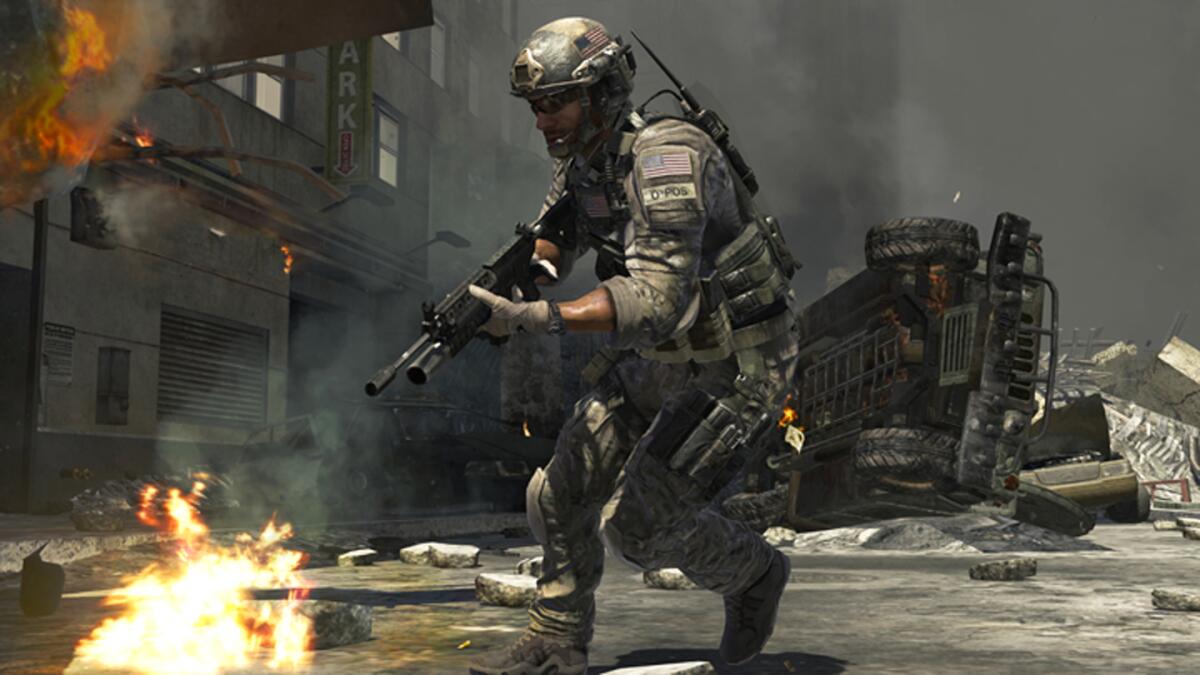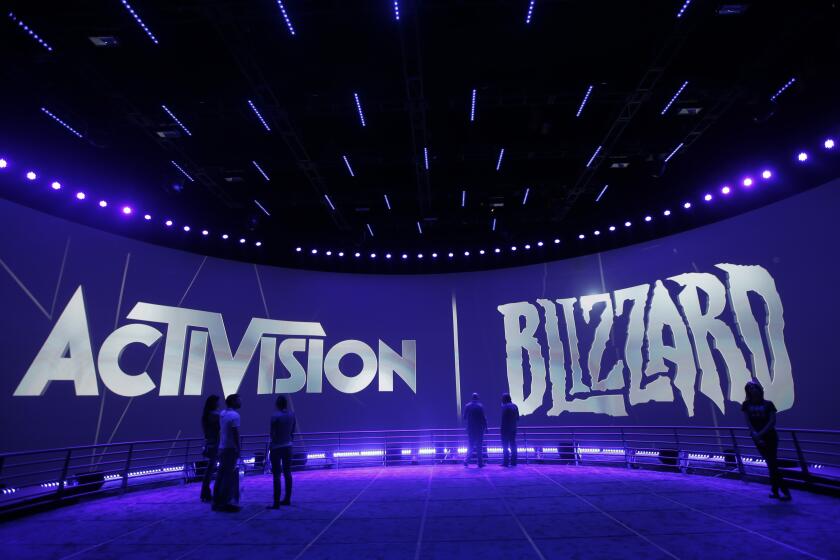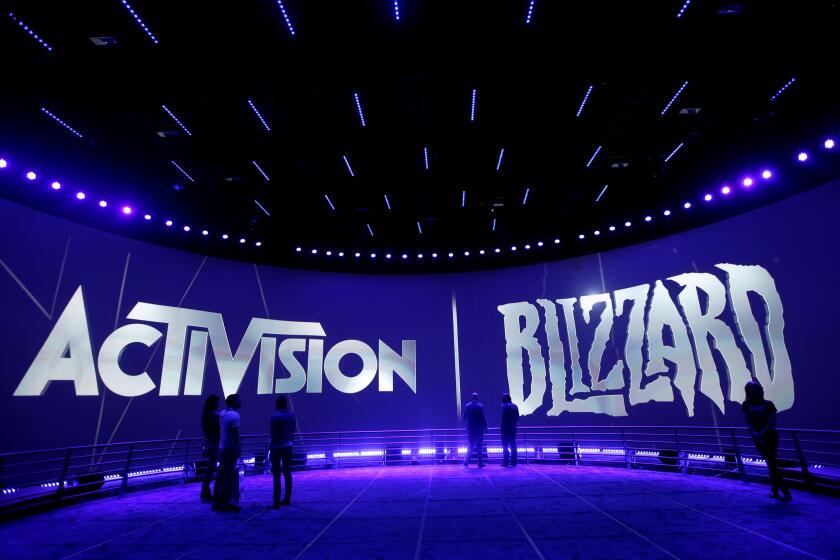Why Microsoft’s Activision Blizzard deal could mean better games

Few things are as perpetually uncool as a tech behemoth, but this week Microsoft gets to play the role of savior.
The company on Tuesday agreed to buy Activision Blizzard for $68.7 billion, continuing Microsoft’s strong investment in providing content for its Xbox gaming ecosystem, primarily the Game Pass subscription service. The move comes as Activision Blizzard has been embattled in allegations of workplace harassment and gender discrimination, which has resulted in more than one staff walkout and calls for Chief Executive Bobby Kotick to resign. (So far, Kotick is staying, at least until the deal is finalized in 2023.)
Activision Blizzard’s reputation, however, has long been on the decline. No one doubts the financial appeal of the “Call of Duty” games — the brand owned the top two slots on 2021’s top-seller list, according to industry tracking firm the NPD Group. It’s critic- and trend-proof, and if you’re building a subscription service it’s a powerful franchise to have in the stable.
Lots of questions come with a merger — potential layoffs chief among them, as well as long-term fears of a heavily consolidated game industry where the power sits only with Microsoft, Sony and Nintendo, leaving fewer opportunities for independents to negotiate or find publishers. But artistically this is an instance where Activision Blizzard teams may benefit from a change of scenery.
Microsoft would gain access to games such as ‘Call of Duty’ and ‘Candy Crush,’ as Activision remains in turmoil over claims of misconduct and unequal pay.
Microsoft hasn’t been shy about its ambitions for its Xbox consoles, and these days it’s content rather than wowing with new tech. The Xbox Series S, for instance, is more or less an entry-level console geared for GamePass. And recent acquisitions, including the critically adored studios Double Fine Presents and Bethesda, has shown that Microsoft is serious when it comes to flooding Game Pass with future content from vastly different studios.
It’s bad news, potentially, for owners of other consoles who love any of these aforementioned studios, but that can be tempered if cloud gaming eventually fulfills its promises and games are accessible via apps. That’s still years away if mass adoption is a goal, but probably closer than we think for enough early adopters to make a difference. Ultimately, it’s a vision beyond a box that sits next to a television.
How is that good news for Activision Blizzard teams who now have to fret whether they’ll still have jobs in a few months?
Maybe it’s the optimist in me, but Activision Blizzard brands needed a shake-up that current leadership, with its obsession on “Call of Duty” and the tight reins it’s placed on Blizzard, seemed incapable of providing. “Call of Duty” largely follows a formula; the latest in the “Overwatch” and “Diablo” franchises continue to suffer delays; and the most critically adored game Activision Blizzard has published in recent years came from outside the company in “Sekiro: Shadows Die Twice.” (Activision’s biggest non-”Call of Duty” properties, such as “World of Warcraft” and “Candy Crush Saga,” came to the organization via acquisitions or mergers.)
Activision Blizzard’s board seems to be giving CEO Bobby Kotick a pass despite reports that he allowed a toxic workplace culture to fester for years.
Only someone with a functional crystal ball knows if any of that will change under Microsoft rule. Microsoft has an uphill battle, especially with the company’s reputation — and that of Kotick — in recent years taking a big hit. But Activision Blizzard will again, at long last, be a company in the hands of people willing to make bets on content.
The suit filed against Santa Monica-based Activision Blizzard lays bare the gross inequalities that have long plagued a male-dominated industry
More to Read
The biggest entertainment stories
Get our big stories about Hollywood, film, television, music, arts, culture and more right in your inbox as soon as they publish.
You may occasionally receive promotional content from the Los Angeles Times.












